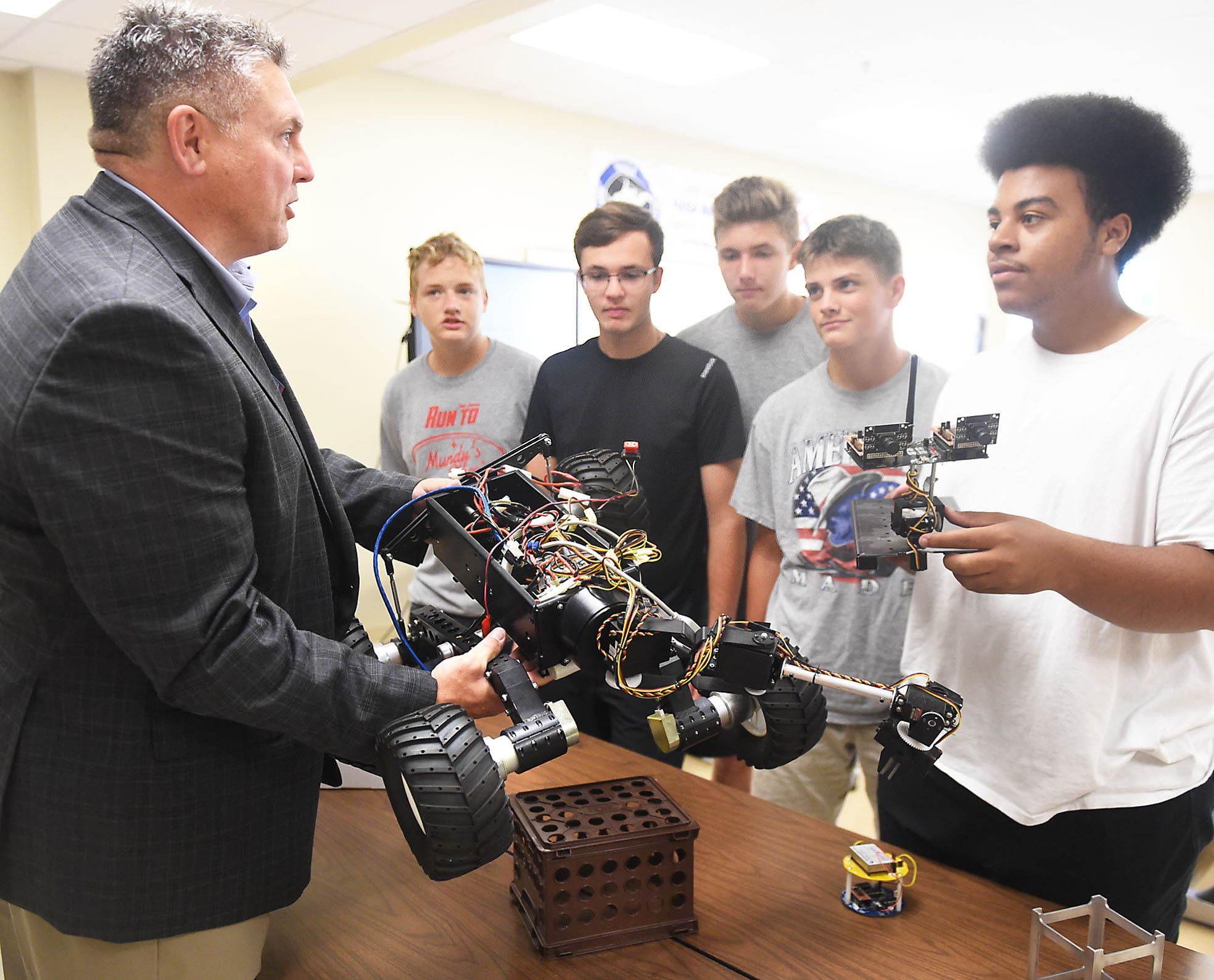Justin Braun is a wrench-turner from way back, even if he is still just a junior at Trinity Christian School.
He’s car-crazy, and wants to major in mechanical engineering.
Wednesday morning, he was regarding an out-of-this-world ride in Marcus Fisher’s computer science and engineering class at his school.
It was a scaled-down, working model of the latest incarnation of NASA’s Mars Rover, the kind of which will cruise the Red Planet during future space missions to come.
“Pretty awesome frame and suspension,” he said.
Pretty awesome class, said Fisher, a Westover native who went on to be a professor and chief engineer at NASA.
This is the first year of the class at the faith-based school in Sabraton.
The class blends computer science and other tech-applications, including coding and robotics, the engineer said.
Fisher is also a professor of information systems management at Fairmont State University, in addition to his NASA appointment.
Before joining the space agency, Fisher was on the computer science and engineering faculty at WVU, where he authored a widely regarded textbook on the design and troubleshooting of complex computer software systems.
He is also the advisor of the Monongalia Meteors.
That’s the group of science-minded youngsters from the Morgantown area who designed a mini-satellite that launched last spring on a resupply mission to the International Space Station.
The satellite chronicled the effects of increased ultraviolent radiation from climate change on the planet we call home.
Such work at such a young age, Fisher said, carries a two-fold payload.
There’s the joy of the discovery to be sure, he said, but there’s also the intellectual fun of placing all those building blocks of learning into the project at hand.
Sounds good to Justin, the student said. Especially where the Rover is
concerned.
“Hey,” he said. “A car’s a car, no matter where it runs.”
Except, when it isn’t.
The final communication in February from a NASA Rover name.
“Opportunity,” was interstellar testament to that.
Known by its nickname, “Oppy,” the rover was originally designed to last about 90 days on the surface of Mars, but it went way beyond that expiration date.
Fifteen years beyond, in fact.
The tenacious machine was finally done-in by a giant dust storm.
“My battery is low and it’s getting dark,” was how the Rover’s last words were originally reported.
NASA scientists said later the above was a “poetic translation” of Oppy’s squawks and beeps from outer space.
TWEET @DominionPostWV




